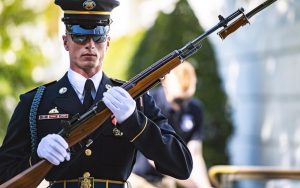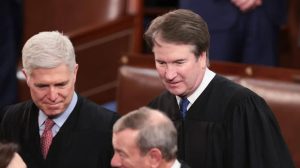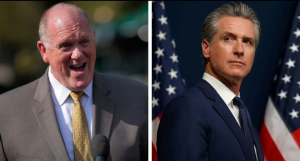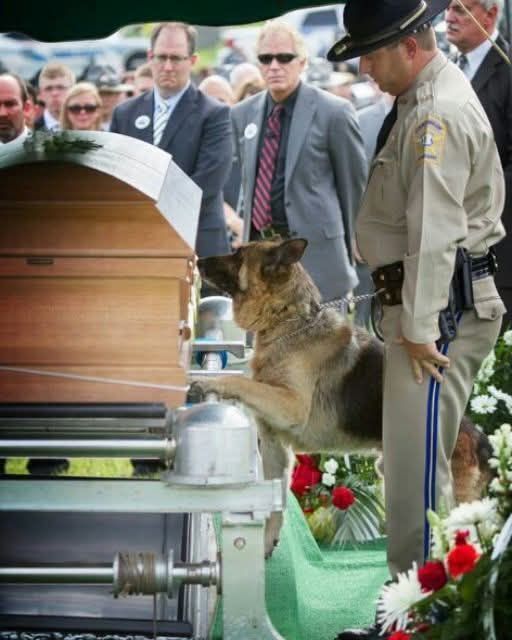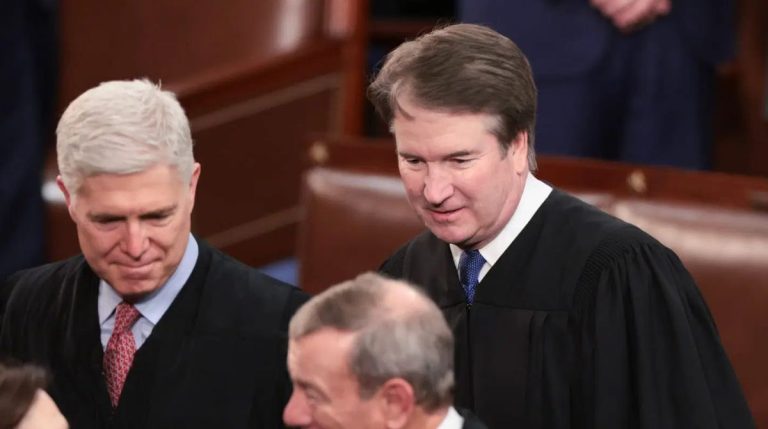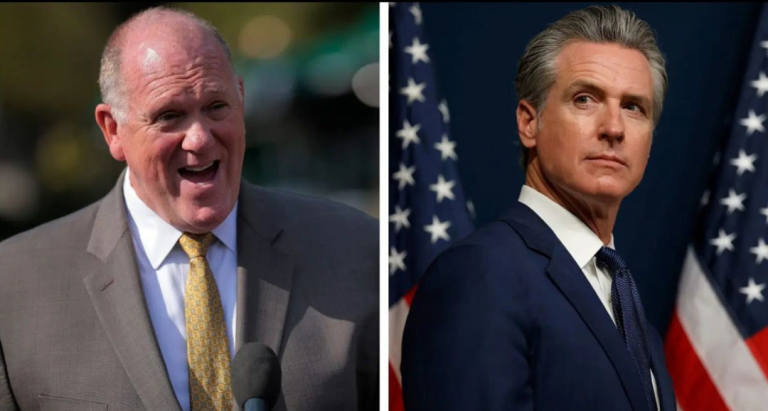He Wouldn’t Leave the Casket—Not Until He Could Smell the Truth
Introduction
In the corridors of law enforcement—and in the hearts of those who serve—there exists a bond that transcends routine duty. It is a bond forged by loyalty, tested in the crucible of tragedy, and ultimately defined by an unyielding commitment to the truth. This is the story of Valor, a highly trained K9, and his unwavering determination to uncover the mystery behind his partner’s death. It is a tale that weaves together elements of duty, sorrow, and an unrelenting search for justice.
In this narrative, I, a local journalist with a keen eye for the overlooked and the unsaid, recount the events that began with a single, perplexing scene at a memorial service and led to a full-scale investigation into corruption, betrayal, and cover-ups within our community. It is a story that challenges conventional notions of duty and highlights the extraordinary lengths to which one loyal dog—and a few determined humans—will go to seek the truth.
The Unsettling Memorial
It began on a cold, overcast morning when the entire precinct gathered for a ceremony that was both quiet and deeply respectful. The service was meticulously arranged: badges shone under the faint light, flags were folded with precision, and every detail exuded solemnity. I found myself standing at the back of the room, not entirely part of the official proceedings, yet drawn inexorably toward the unfolding events.
There, at the center of the gathering, lay a casket draped in muted hues of blue and gold. For many, it was the final resting place of Officer Silas—my colleagues and I would soon learn that his death was not as straightforward as the official report had suggested. Silas had been more than just an officer; he was a partner, a mentor, and a friend. And none more loyal than Valor, the German Shepherd who had served by his side.
The K9 had earned a reputation for excellence. Trained rigorously and respected by all, Valor was renowned for his sharp instincts and an almost telepathic connection with his handler. Yet, as I watched him that morning, something was different. There, at the front of the casket, Valor had placed his front paws on the polished wood, his nose pressed steadily against the surface. He neither barked nor growled; he simply sniffed—slowly, methodically— as though trying to decode a secret message hidden within the very fibers of the casket.
I recalled the reports from the last few days: whispers of a dog who had not eaten since the tragedy; accounts of four agonizing days during which Valor had paced relentlessly outside the precinct, whining at every attempt to pull him away from the front door. Then, finally, that morning came when, against all odds, he was allowed to ride in the patrol car one final time. He leapt in with a conviction that suggested he knew exactly where he was headed.
Valor’s Unspoken Testimony
For those who had followed his career, Valor was more than just a trained police dog; he was a living embodiment of loyalty and instinct. In countless instances, I had witnessed him work in tandem with his handler, each move synchronized as if the two shared a single mind. His gaze would fix on his partner with an intensity that conveyed the unspoken promise of unwavering support—even in the darkest of times. And now, here he was, at a service that was both a farewell and a silent indictment.
With his nose pressed to the wood of the casket, Valor seemed to be verifying something that none of us could articulate. There was no commotion—no barking to announce his disapproval, nor any growling to signal a threat. Instead, there was a deliberate, measured sniffing, as if he was trying to absorb every detail, every nuance of the scene before him.
The officer holding Valor’s leash—his handler—appeared as if he was struggling to maintain his composure. His knuckles were white with tension, and every muscle in his face betrayed the turmoil within. It was as though he, too, sensed that something was amiss. Valor’s actions, seemingly simple in nature, had triggered a cascade of questions among those present. They asked silently: What was he smelling? What truth was hidden in that final moment of contact with the casket?
For those of us in the crowd, the answer lay in a small, almost inconspicuous detail—a tiny piece of folded fabric wedged behind the base of the casket. At first glance, it might have been dismissed as an accident, an inconsequential remnant of the day’s meticulous arrangements. But I knew better. That scrap of uniform was not his. It was made from a darker shade of blue, a different material that carried a peculiar, acrid odor reminiscent of burnt metal and something indefinable—a chemical tang that did not belong in a normal farewell.
The Unanswered Questions
The discovery of the fabric raised a flurry of unsettling questions. Who did it belong to? Why was it there? And most importantly, what did it signify? As whispers spread through the crowd, the air grew heavy with a sense of foreboding. Everyone knew, deep down, that there was more to Officer Silas’s death than what had been officially reported.
The official narrative had been that Silas died on duty. Yet, the circumstances surrounding his final call were shrouded in mystery. Rumors began to surface among the ranks: Silas was not meant to be on duty that night; there were inconsistencies in the reports; and, most disturbingly, the call that had dispatched him to that fateful scene was flagged as a “phantom call” in the radio logs. No official record could account for the transmission that had ultimately sealed his fate.
Valor’s insistence on lingering at the casket—and his unwavering focus on that strange piece of fabric—felt like a silent protest. It was as if the loyal K9 was determined to uncover the truth, to seek out the facts that had been deliberately concealed from us all. That determination was something no amount of training or protocol could suppress. And in that moment, I realized that Valor’s actions were not random; they were a deliberate, instinctual response to injustice.
Four Days of Relentless Vigil
The preceding four days had been a study in heartbreak and perseverance. Since the incident, Valor had not eaten; his appetite lost in the wake of a tragedy that had shaken the precinct to its core. He paced the hallways, whining incessantly, his eyes fixed on the door leading to the station. Every attempt to console him, every hand that tried to guide him away, was met with steadfast resistance. He would not be distracted. He would not let go until he could get to the heart of the matter.
That determination was both admirable and haunting. Valor’s behavior, inexplicable to many, was a silent testament to the deep bond he had with Officer Silas—a bond that went beyond the call of duty and into the realm of unspoken loyalty. When the decision was finally made to allow him one last ride in the patrol car, his reaction was immediate and resolute. He jumped in as if guided by an inner compass, as if he knew, with unwavering certainty, where he was meant to go.

